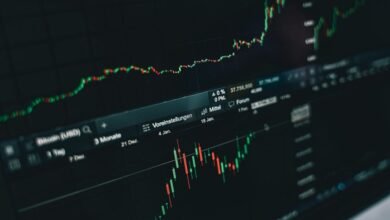4086763310: Key Trends and What They Mean for the Future

The analysis of key trends reveals significant shifts in technology, consumer behavior, economic dynamics, and societal values. These elements intertwine to redefine industry landscapes. Organizations face the imperative to innovate and adapt their strategies accordingly. Emerging patterns suggest that agility and inclusivity will become paramount. Understanding these trends is essential for navigating the complexities of the future. What specific strategies will organizations adopt to align with these transformative forces?
Technological Advancements Shaping Industries
As industries navigate an increasingly complex landscape, technological advancements emerge as pivotal forces driving transformation.
AI integration and automation advancements streamline operations, while digital transformation reshapes traditional business models.
Cybersecurity enhancements safeguard sensitive data amidst IoT expansion.
Blockchain applications ensure transparency, and remote work fosters flexibility.
Furthermore, augmented reality and data analytics empower decision-making through smart technologies, enriching the overall industrial ecosystem.
Evolving Consumer Behavior Trends
A significant shift in consumer behavior is reshaping market dynamics across various sectors.
Increasingly, consumers prioritize personalization preferences, seeking tailored experiences that resonate with their individual values.
Additionally, sustainable consumption has gained prominence, with buyers favoring eco-friendly products and practices.
This evolution reflects a broader demand for authenticity and responsibility, compelling brands to adapt strategies that align with these transformative consumer expectations.
Economic Shifts and Their Impact
While global economic shifts continue to unfold, their impact on various industries is becoming increasingly evident.
The dynamics of global trade are evolving, compelling businesses to reassess strategies. Concurrently, workforce transformation emerges as a critical factor, with automation and remote work reshaping employment landscapes.
These changes necessitate adaptability, as organizations strive to harness opportunities while mitigating challenges in an increasingly interconnected economy.
Societal Changes and Future Implications
Although societal changes often unfold gradually, their implications for the future are profound and multifaceted.
Social movements catalyze significant cultural shifts, challenging established norms and redefining collective values. As these dynamics evolve, they reshape individual identities and societal frameworks, fostering a landscape where diversity and inclusion flourish.
Understanding these trends is essential for navigating the complexities of tomorrow’s interconnected world, ultimately enhancing personal and communal freedoms.
Conclusion
In navigating the dynamic landscape shaped by technological advancements and shifting consumer behaviors, businesses must evolve like a river, which carves its path through rock over time. Just as the river adapts to obstacles while maintaining its course, organizations must embrace agility, prioritize sustainability, and foster inclusivity to thrive. As the currents of economic and societal change flow relentlessly forward, those that remain rigid will ultimately be left behind, underscoring the need for adaptability in an interconnected world.






